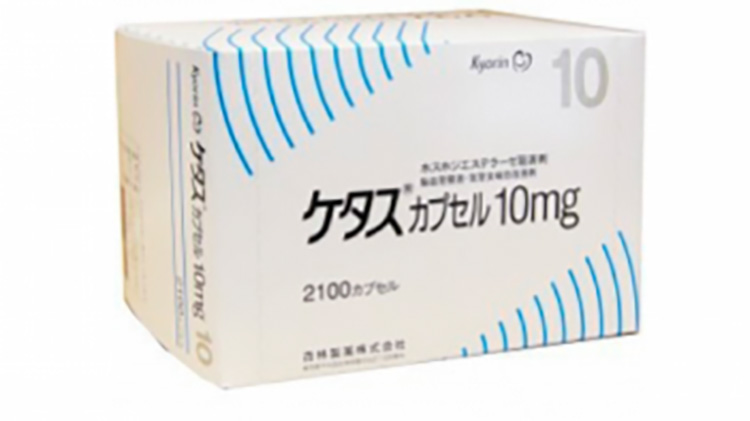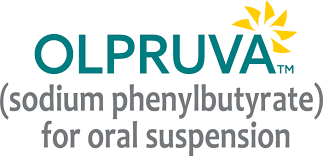Ketas (ibudilast) vs Olpruva (sodium phenylbutyrate)
Ketas (ibudilast) vs Olpruva (sodium phenylbutyrate)
Ketas (ibudilast) is primarily known for its neuroprotective and anti-inflammatory properties and has been investigated for the treatment of multiple sclerosis and other neurological conditions, whereas Olpruva (sodium phenylbutyrate) is a medication used to treat urea cycle disorders by helping to remove ammonia from the body. Ibudilast's mechanism of action involves phosphodiesterase inhibition and modulation of glial cell activity, which may be beneficial in neurodegenerative diseases, while sodium phenylbutyrate works by providing an alternative pathway for the excretion of nitrogen. The choice between Ketas and Olpruva would depend on the specific condition being treated, as they have different indications and mechanisms of action; a healthcare provider would need to evaluate the patient's diagnosis and treatment goals to determine the most appropriate medication.
Difference between Ketas and Olpruva
| Metric | Ketas (ibudilast) | Olpruva (sodium phenylbutyrate) |
|---|---|---|
| Generic name | Ibudilast | Sodium phenylbutyrate |
| Indications | Asthma, stroke prevention, multiple sclerosis (off-label) | Urea cycle disorders, hyperammonemia |
| Mechanism of action | Phosphodiesterase inhibitor, anti-inflammatory | Ammonia scavenger |
| Brand names | Ketas | Buphenyl, Ammonaps |
| Administrative route | Oral | Oral, intravenous (for the related compound sodium phenylacetate) |
| Side effects | Nausea, dizziness, diarrhea | Body odor, headache, nausea, vomiting, amenorrhea |
| Contraindications | Hypersensitivity to ibudilast or any component of the formulation | Hypersensitivity to sodium phenylbutyrate or any component of the formulation |
| Drug class | Phosphodiesterase inhibitor | Ammonia scavenger |
| Manufacturer | Kyorin Pharmaceutical Co., Ltd. | Horizon Pharma |
Efficacy
Efficacy of Ketas (Ibudilast) in Amyotrophic Lateral Sclerosis (ALS)
Ibudilast, known by the brand name Ketas, is a phosphodiesterase inhibitor that has been primarily used in the treatment of asthma and post-stroke complications. Its efficacy in Amyotrophic Lateral Sclerosis (ALS) has been a subject of research due to its neuroprotective and anti-inflammatory properties. While Ketas is not currently approved for the treatment of ALS, clinical trials have been conducted to assess its potential benefits. Some studies suggest that Ibudilast may slow the progression of ALS by reducing the levels of certain inflammatory markers and slowing the decline in motor function. However, the data are not yet conclusive, and further research is needed to establish its efficacy and safety profile for patients with ALS.
Efficacy of Olpruva (Sodium Phenylbutyrate) in Amyotrophic Lateral Sclerosis (ALS)
Sodium Phenylbutyrate, marketed as Olpruva, is a drug that has been used off-label for the treatment of various diseases, including ALS. It is a histone deacetylase inhibitor and has been investigated for its potential to modulate gene expression and reduce the accumulation of misfolded proteins, which are implicated in the pathogenesis of ALS. Clinical trials have explored the effects of Sodium Phenylbutyrate on the functional decline in ALS patients. Some studies indicate that when used in combination with other drugs, such as Tauroursodeoxycholic acid, it may have a stabilizing effect on the progression of the disease. However, as with Ketas, more comprehensive studies are required to fully understand the efficacy of Olpruva in the treatment of ALS.
Combined Therapy and Future Directions
The combination of drugs like Ibudilast and Sodium Phenylbutyrate is an area of interest in ALS research due to the potential synergistic effects that could enhance patient outcomes. The complexity of ALS pathogenesis suggests that a multi-targeted therapeutic approach may be beneficial. As research progresses, the efficacy of these drugs, either alone or in combination, will become clearer. It is essential for ongoing and future clinical trials to provide robust evidence to support any off-label use of these medications in the management of ALS.
Conclusion
In conclusion, while Ketas (Ibudilast) and Olpruva (Sodium Phenylbutyrate) show promise in the treatment of Amyotrophic Lateral Sclerosis, their efficacy is not yet fully established. Current evidence from clinical trials suggests potential benefits, but further investigation is necessary to confirm their therapeutic roles. Healthcare providers should keep abreast of the latest research findings and clinical guidelines to make informed decisions regarding the off-label use of these medications for ALS patients.
Regulatory Agency Approvals
Ketas
-
Pharmaceuticals and Medical Devices Agency (PMDA), Japan

Olpruva
-
Food and Drug Administration (FDA), USA

Access Ketas or Olpruva today
If Ketas or Olpruva are not approved or available in your country (e.g. due to supply issues), you can access them via Everyone.org.
How it works

Make an enquiry
Choose the medicine you want to buy, answer a couple of questions, and upload your prescription to speed things up. We’ll get back to you within 24 hours.


Make an enquiry
Choose the medicine you want to buy, answer a couple of questions, and upload your prescription to speed things up. We’ll get back to you within 24 hours.


Breeze through the paperwork
We'll guide you through the required documents for importing unapproved medicine, ensuring you have all the necessary information.


Get a personalized quote
We’ll prepare a quote for you, including medicine costs and any shipping, administrative, or import fees that may apply.


Receive your medicine
Accept the quote and we’ll handle the rest - sourcing and safely delivering your medicine.

Some text on this page has been automatically generated. Speak to your physician before you start a new treatment or medication.
Let's talk
If you have any questions, call us or send us a message through WhatsApp or email:
Contact us




